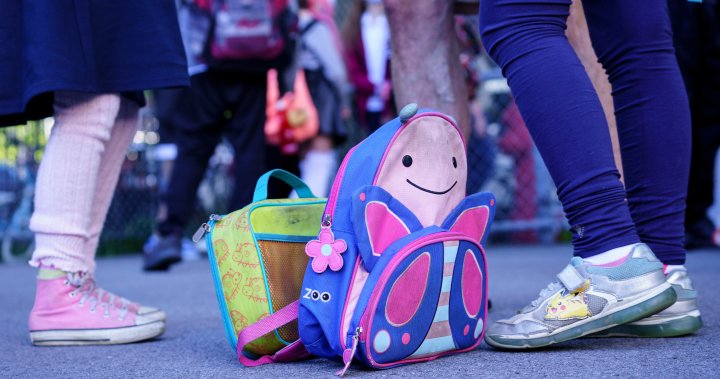A recent public health report released by Montreal’s public health department examines the impact of economic inequality on the health and development of children in the city. The report highlights significant disparities in health outcomes based on where children live and their socioeconomic status. It found that children living in disadvantaged environments are less active and spend more time on screens compared to their better-off peers. These factors are associated with various health problems such as sleep disorders and concentration difficulties.
The report also reveals that disadvantaged teens are less likely to graduate high school, further emphasizing the impact of economic inequality on educational outcomes. Additionally, a study on kindergarten students found that certain groups, including children from disadvantaged backgrounds, those born outside of Canada, and those for whom French is not their first language, are at higher risk of developmental vulnerability tied to inequality. The report calls for targeted interventions to address the specific health and education needs of these subgroups, such as students needing special support and boys.
Inequality is also reflected in vaccination rates, with variations across different neighborhoods in Montreal. The report highlights the drop in measles and chickenpox vaccination rates at the elementary school level, with rates ranging from 65 percent to 86 percent in different areas of the city. Furthermore, disparities exist at the neighborhood level, with some areas lacking access to parks, public transit, safe streets, and daycare facilities. This lack of resources can contribute to higher levels of inactivity and screen time in Montreal compared to the rest of the province.
Housing insecurity is identified as a significant issue affecting many Montreal families, with a large number spending a high percentage of their income on housing. The report points out that more than one in five children in Montreal live in food-insecure households, highlighting the stress and health implications of housing instability. Difficult living conditions, such as mould and overcrowding, can lead to health problems and have long-term impacts on children’s health and development.
The report concludes with a series of recommendations to address the issues of economic inequality and its impact on child health in Montreal. These include calls for more social and affordable housing, financial subsidies for low-income families, and increased access to daycare spaces for vulnerable children, including those with special needs and the children of asylum seekers. By addressing these social determinants of health, the report aims to reduce health disparities and promote better outcomes for all children in Montreal.


